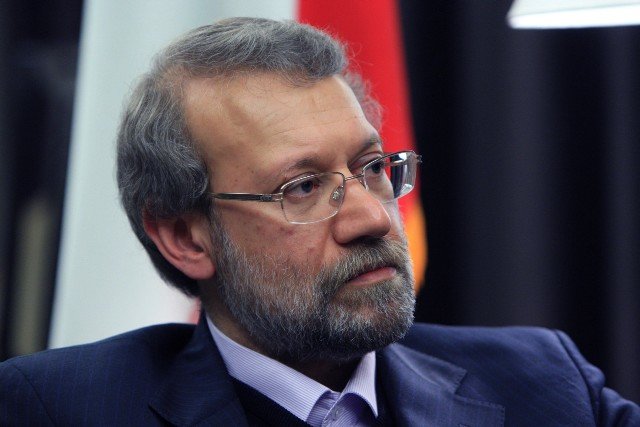Tehran’s policy in ‘jelly’ Middle East is rational: Larijani

TEHRAN – The Iranian parliament speaker has characterized performance of some regional countries as “zigzag and conspiratorial,” saying his country has acted judiciously in the mercurial region of the Middle East.
Larijani made the remarks in the city of Qom, which he represents in the parliament, Mehr reported on Thursday.
“While the region is in jelly political and security conditions and unlike the zigzag and conspiratorial stance of some neighboring countries, the behavior of the Islamic Republic (of Iran) has been wise and rational,” said Ali Larijani.
Apart from the U.S. attacks on Afghanistan and Iraq, the Middle East has been a large battlefield fought by terrorist and extremist groups in Iraq and Syria, where the self-proclaimed ISIS holds vast swathes of land.
Also, the Saudi-led war on Yemen and the abortive military coup in Turkey have added more complexity to the scene.
Iran has been backing Iraq and Syria in their fight against ISIS, an extremely shadowy group which its heinous crimes have come as a surprise to the world.
Even three years before the emergence of ISIS, also called Daesh in its Arabic acronym, Iran sided with the Syrian government against militants, calling Syria the “golden ring of resistance.”
However, Saudi Arabia and its regional allies have been pouring money and arms to militants in Syria, working hard to dethrone President Bashar al-Assad.
Iran and Saudi Arabia as two regional powerhouses also differ widely on developments in Iraq. While Iran has been supporting Iraq to expel ISIL militants from lands it has occupied in the country the Riyadh government claims that Tehran is fomenting sectarian conflicts in favor of the Shiite population under the guise of its advisory role in the country.
In June Saudi Ambassador Thamer al-Sabhan to Baghdad had tweeted that Iranian military advisers were fueling sectarian violence in Fallujah, seeking to change the demographic composition of Fallujah, inhabited mainly by Sunnis.
Reacting to the sectarian and religious remarks by Saudis against Tehran, Iraqi Ambassador to Tehran Rajeh Saber Abboud al-Mousavi said in July, “There is no document indicating Iran’s interference with domestic affairs of countries.”
“Iran’s role in Iraq is limited to an advisory one and this is done at the formal request of Baghdad,” he added.
On June 29 U.S. Secretary of State John Kerry deemed Iran's presence in Iraq to be "helpful" to American attempts to beat back the threat of ISIS, according to CNN.
"Look, we have challenges with Iran as everybody knows and we are working on those challenges," Kerry said. "But I can tell you that Iran in Iraq has been in certain ways helpful, and they clearly are focused on ISIL-Daesh, and so we have a common interest, actually," Kerry noted.
Brent McGurk, the U.S. special envoy tasked with defeating ISIS, also said on June 29 that Iran-backed Shiite militias are mostly helpful in Iraq, though some go rogue.
"We think most of these popular mobilization forces do operate under the control of the Iraqi state, but about 15-20% of them actually do not," McGurk said.
AK/PA
Leave a Comment